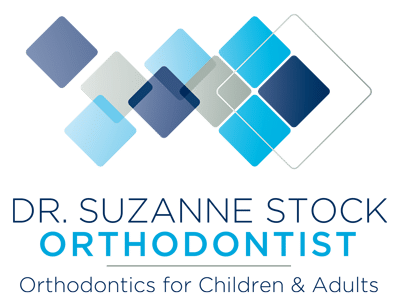Are you going to be getting braces soon? If your orthodontist recommends braces, it is because they are the best treatment option for you. It is normal to have questions and even concerns, such as: do braces hurt? Here’s what you need to know in order to be fully prepared for your upcoming treatment.
What Are Braces and How Do They Work?
Braces are the most common orthodontic treatment. They consist of brackets that attach to the front side of each tooth. Brackets are small, square-shaped pieces of metal or ceramic. A metal archwire connects the brackets and exerts force on the teeth to shift them into the proper position. Rubber bands, wires, and other parts may be used to achieve the desired results.
Braces May Cause Some Discomfort
During your first days in braces, you may experience some tenderness in your jaw and gums. This is because the teeth are being shifted out of their usual position for the first time. Initial discomfort should subside in 3-4 days. You may only experience tenderness when chewing for the most part.
Braces may cause irritation to the inside of your cheeks and lips. Your tongue may also become sore if you use it to clear food out of your braces when eating. Eventually the soft tissues of your mouth will get used to the braces and the irritation will subside.
Managing Braces Discomfort
There are many ways to manage braces discomfort:
- Pain relievers. Over the counter pain medication can help manage braces discomfort. Ibuprofen (Advil, Motrin) or acetaminophen (Tylenol) are highly effective. Ibuprofen is an anti-inflammatory medication, which can help relieve inflammation in the soft tissues of the mouth.
- Orthodontic wax. Orthodontic wax can be placed over your brackets to prevent them from rubbing against your cheeks and lips. If you develop sores, wear the wax until the sores have completely healed.
- Salt water rinse. Mouth sores can be treated with a salt water rinse. Stir one tablespoon of salt into 8 ounces of warm water. Rinse your mouth with salt water for 30 seconds to a minute a few times a day.
- Eat a soft diet. Eating soft foods can help you avoid discomfort while your mouth gets used to your braces.
- Drink ice cold beverages. Drinking cold beverages can reduce inflammation, such as milkshakes and smoothies. But don’t chew on ice because it can damage your braces.
Frequently Asked Questions About Braces
How long will I have to wear braces?
Average treatment time is 1-3 years for braces. The exact length of your treatment will vary based on a variety of factors such as the severity of your case, your age, and how well you comply with your orthodontist’s instructions for your treatment.
Are there alternatives to braces?
Clear aligners provide an alternative to braces. Many patients prefer them because they are discreet and made of smooth plastic that is less likely to irritate the soft tissues of your mouth. They are also removable for eating and cleaning your teeth.
Getting Started With Orthodontic Treatment
Does your child need braces? To find out, children should have an orthodontic evaluation by the age of 7 to determine if treatment is needed and when. Most children will need braces between the ages of 10 and 14. Some children may need early treatment starting around age 7-8. Dr. Suzanne Stock provides free evaluations and will monitor progress until the time is right for treatment.
Contact us today to learn more and schedule an appointment.

